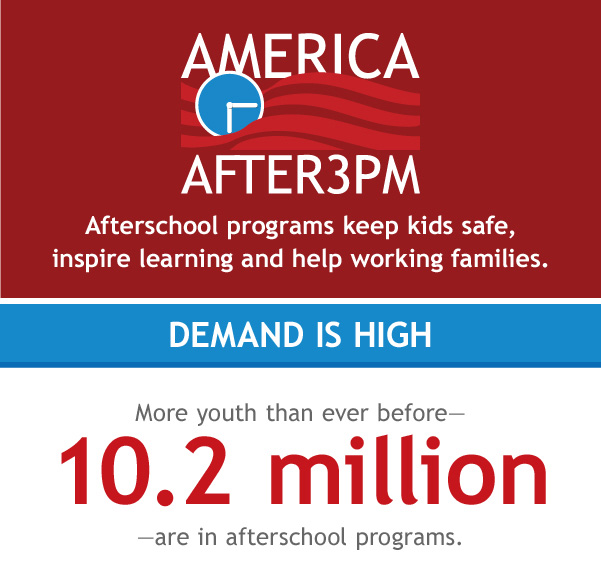Advocates for after-school programs have swung into action, fearing that federal funding for after-school and summer programs could be diverted and lost.
More than 50 national organizations — including the YMCA of the USA, Boys & Girls Clubs, the National 4-H Council, Save the Children and the National Recreation and Parks Association — have joined an effort to preserve funds for the 21st Century Community Learning Centers.
Along with more than 200 state and local groups, they have signed a letter asking the Senate Health, Education, Labor & Pensions Committee (HELP) to keep the program that provides $1.12 billion in grants to after-school programs.
Leading the effort is the Afterschool Alliance, the nonprofit advocacy group organized in 2000.
Executive Director Jodi Grant sounded an alarm last week when a draft education bill in the Senate HELP Committee called for elimination of the 21st Century Community Learning Centers program — the one federal funding stream earmarked specifically for after-school programs, according to the Afterschool Alliance.
The Senate HELP committee, chaired by Sen. Lamar Alexander, R-Tenn., is looking to make major changes in the No Child Left Behind Act. Included in its draft legislation is a provision to kill the 21st Century program, which is located in the U.S. Department of Education, and shift its funding to block grant for states.
Alexander, speaking at a roundtable discussion today, said the federal government should enable and encourage, rather than mandate, local school innovation.
The draft legislation before his committee would divert after-school funds for a wider variety of purposes, said Erik Peterson, vice president for policy at the Afterschool Alliance. Funds could be used for in-school services — more school counselors, for example — as well as after-school programs.
“When you [do this] you see less for after-school,” Peterson said.
The Alliance warned in a statement, “Forcing after-school programs to compete for dollars with other necessary services delivered during the school day would inevitably result in less funding for these essential programs.”
Four Democratic and Republican senators — among them Barbara Boxer, D-Calif., and Lisa Murkowski, R-Alaska, have teamed up to try to preserve the money through new legislation. The Afterschool for America’s Children Act was introduced Thursday.
And President Barack Obama’s 2016 budget, released Monday, would continue the funding for the 21st Century program.
However, if the Senate proposal becomes law and funds go directly to local school districts, it would shrink community partnerships in after-school programs, Peterson said.
One-fifth of the programs receiving grants are community-based organizations and another one-fifth are groups such as churches, charter schools and private schools, according to the Afterschool Alliance.
On average, each program has two additional funding sources and nine partner organizations, the Alliance says.
If the funding is changed, after-school programs “are going to be without the community support,” Peterson said.
His other concern is that less funding will be earmarked for research, evaluation and professional support. “We’re concerned about the quality of programs,” he said.






























